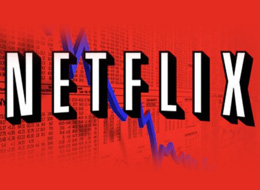Netflix observed a disturbing loss of investors in the after hours trading, after the company announced on Monday afternoon that it had lost 810,000 subscribers in the third quarter. The company also spread out a word of caution that the sales and earnings may not deliver the expected results in the 4th quarter. The announcement which came along with the revelation of company’s Q3 earnings lead to a fall of over 31% in shares.
Falling short on the expected 24 million subscribers, company ended the quarter with 23.79 million subscribers. However the management has forecasted to gain U.S. subscribers in the ongoing quarter, although no specific target is proclaimed. In contrast to the previous year’s earnings of $38 million, or 70 cents per share, at the same time last year, the company earned $62.5 million, or $1.16, per share, in the third quarter.
Netflix’s customers were let down after the CEO Reed Hastings decided to raise prices for a popular subscription plan. Instead of paying $10 for access to both DVD-by-mail operations and streaming video, Netflix divided it into separate plan which costs $7.99 each.
Although he attempted to follow up last month and announced Qwikster, a separate service for the spin off DVD-by-mail operations but it failed to boost up the confidence of users when he abruptly scrapped Qwikster plan, just three weeks later. Netflix at that time appeared directionless and focus less.
He followed up on that by announcing last month that he would spin off DVD-by-mail operations into a separate service called Qwikster. It didn’t help to boost confidence much when he abruptly scrapped the Qwikster plan three weeks later. Netflix appeared rudderless.
In a letter to subscribers it issued, Netflix detailed the chronology of errors that it said would hurt its fourth quarter performance:
“$7.99 for unlimited streaming and $7.99 for unlimited DVD are both very aggressive low prices, relative to competition and to the value of the services, and they are the right place for Netflix to be in the long term. What we misjudged was how quickly to move there. We compounded the problem with our lack of explanation about the rising cost of the expansion of streaming content and steady DVD costs, so that … many perceived us as greedy. Finally, we announced and then retracted a separate brand for DVD. While this branding incident further dented our reputation, and caused a temporary cancellation surge, compared to our price change, its impact was relatively minor.”
“The last few months…have been difficult for shareholders, employees, and most unfortunately, many members of Netflix,” Hastings wrote in the letter to investors. “We’ve hurt our hard-earned reputation.”
